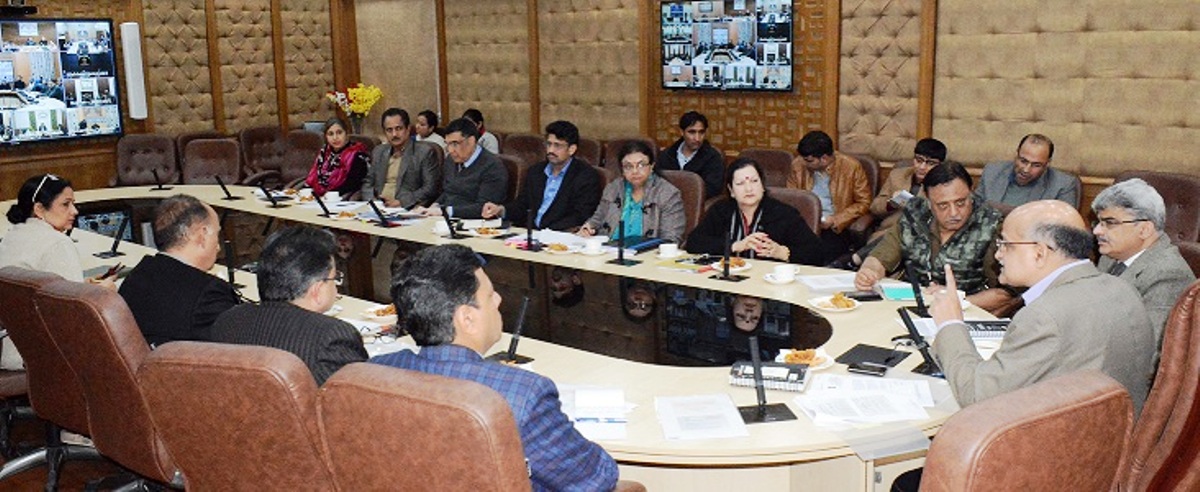SRINAGAR: World Health Organisation (WHO) Director-General, Tedros Adhanom told media in Geneva on Friday that on February 28, China reported only 329 fresh cases, the lowest in more than a month. He said 24 cases were exported from Italy to 14 countries, and 97 cases were flown from Iran to 11 native countries, so far.

Chief Secretary reviews preparedness to tackle the threat posed by Coronavirus
“The continued increase in the number of cases, and the number of affected countries over the last few days, are clearly of concern,” Adhanom said. “Our epidemiologists have been monitoring these developments continuously, and we have now increased our assessment of the risk of spread and the risk of the impact of COVID-19 to very high at a global level.” However, he insisted that they lack “evidence as yet that the virus is spreading freely in communities”. He added: “As long as that’s the case, we still have a chance of containing this virus, if robust action is taken to detect cases early, isolate and care for patients and trace contacts.”
Adhanom listed 10 things that people must know:
“First, as we keep saying, clean your hands regularly with an alcohol-based hand rub, or wash them with soap and water.
Touching your face after touching contaminated surfaces or sick people is one of the ways the virus can be transmitted. By cleaning your hands, you can reduce your risk.
Second, clean surfaces regularly with disinfectant – for example, kitchen benches and work desks.
Third, educate yourself about COVID-19. Make sure your information comes from reliable sources – your local or national public health agency, the WHO website, or your local health professional. Everyone should know the symptoms – for most people, it starts with a fever and a dry cough, not a runny nose. Most people will have mild disease and get better without needing any special care.
Fourth, avoid travelling if you have a fever or cough and if you become sick while on a flight, inform the crew immediately. Once you get home, make contact with a health professional and tell them about where you have been.
Fifth, if you cough or sneeze, do it into your sleeve, or use a tissue. Dispose of the tissue immediately into a closed rubbish bin, and then clean your hands.
Sixth, if you are over 60 years old, or if you have an underlying condition like cardiovascular disease, a respiratory condition or diabetes, you have a higher risk of developing severe disease. You may wish to take extra precautions to avoid crowded areas, or places where you might interact with people who are sick.
Seventh, for everyone, if you feel unwell, stay at home and call your doctor or local health professional. He or she will ask some questions about your symptoms, where you have been and who you have had contact with.
This will help to make sure you get the right advice, are directed to the right health facility, and will prevent you from infecting others.
Eighth, if you are sick, stay at home, and eat and sleep separately from your family, use different utensils and cutlery to eat.
Ninth, if you develop shortness of breath, call your doctor and seek care immediately.
And tenth, it’s normal and understandable to feel anxious, especially if you live in a country or community that has been affected. Find out what you can do in your community. Discuss how to stay safe with your workplace, school or place of worship.
Our greatest enemy right now is not the virus itself. It’s fear, rumours and stigma. And our greatest assets are facts, reason and solidarity.”
from Kashmir Life https://ift.tt/38cgpZj
via IFTTThttps://kashmirlife.net
No comments:
Post a Comment